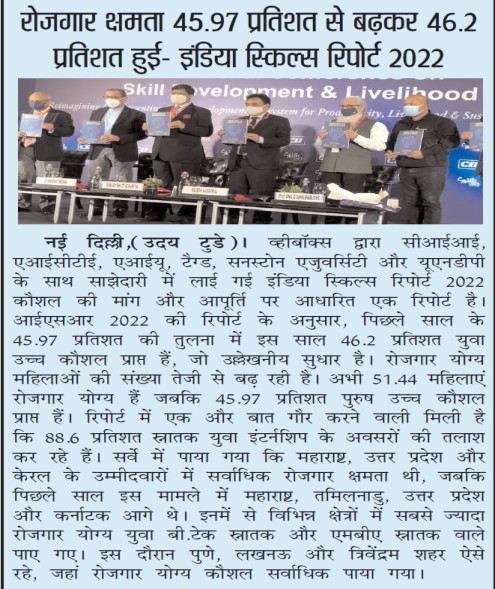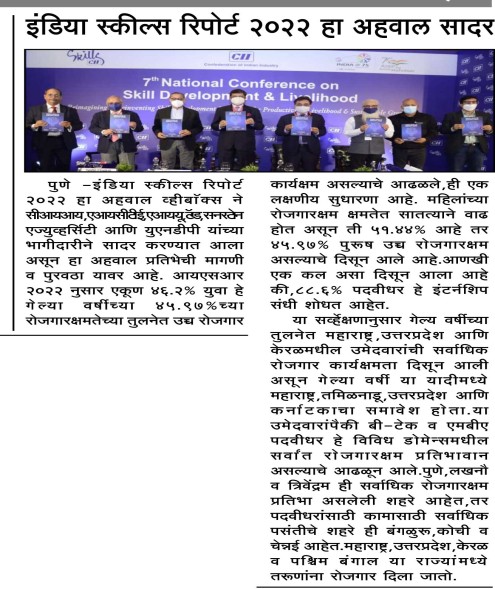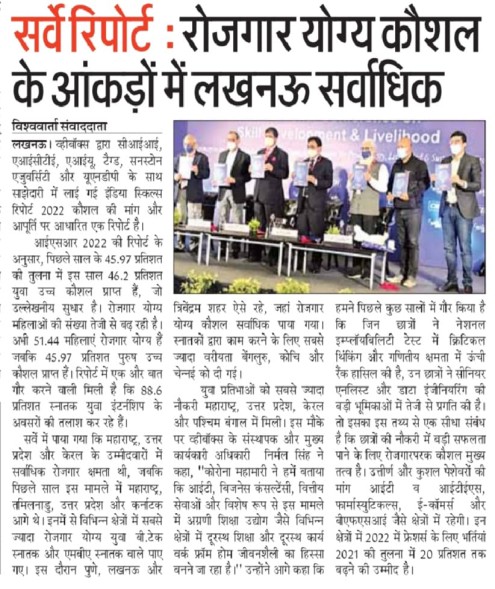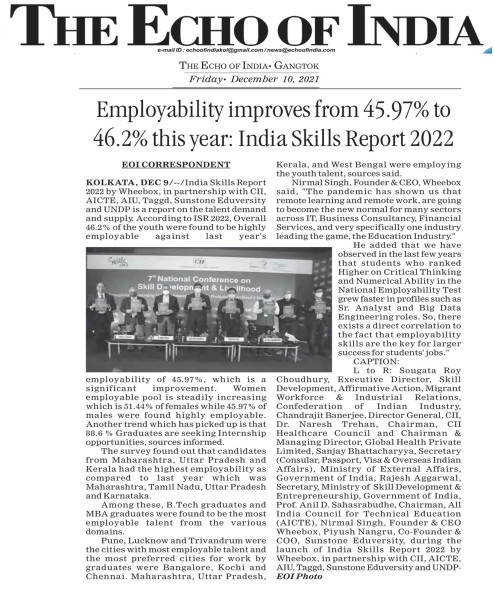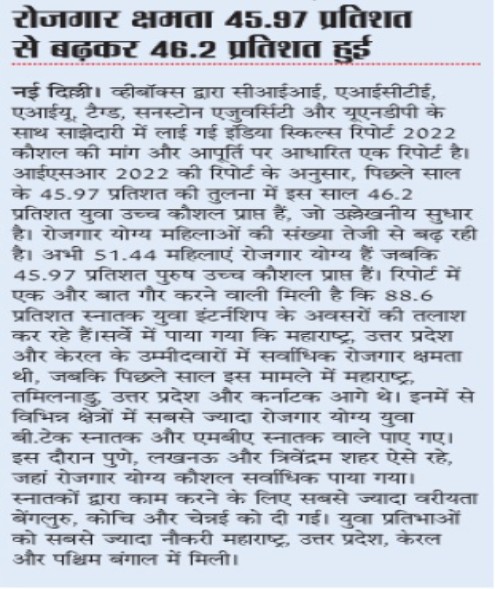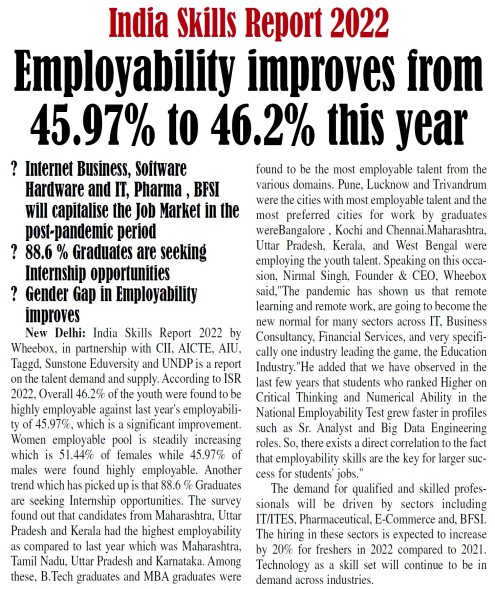Unveiling the Power of Psychometric Assessments in Modern Hiring
Psychometric assessments have gained widespread popularity in the world, particularly in developing countries, as an integral tool for the hiring process. These assessments have evolved from their humble beginnings into sophisticated instruments that measure various aspects of a candidate's psychological and cognitive abilities.
This surge in popularity can be attributed to several factors, including the need for objective and efficient hiring processes, the demand for a skilled workforce, and the globalization of the job market.
Objective and Unbiased Evaluation
One of the primary reasons for the popularity of psychometric assessments is their ability to provide an objective and unbiased evaluation of candidates. Traditional hiring methods often rely on subjective judgments made by interviewers, which can lead to bias based on factors such as gender, ethnicity, or personal preferences. Psychometric assessments, on the other hand, use standardized tests and measurements that are designed to be impartial, ensuring a level playing field for all candidates. In developing countries, where diversity and inclusion are critical issues, the use of psychometric assessments helps reduce discrimination and promotes fairness in the hiring process.
Efficient Screening Process
Psychometric assessments offer a streamlined and efficient screening process for employers. With a large pool of applicants vying for a limited number of positions, recruiters in developing countries face the daunting task of sifting through numerous resumes and conducting interviews. Psychometric assessments provide a quick and reliable method to identify top candidates, saving both time and resources. These assessments help organizations identify the best-fit candidates more efficiently, leading to improved productivity and cost savings.
Predictive Analysis
Psychometric assessments are renowned for their predictive analysis, which means they have a strong correlation with job performance. Organizations are keen to identify individuals who will contribute positively to their success. Psychometric assessments help in identifying candidates who possess the skills, abilities, and personality traits required for specific roles. This analysis reduces the risk of making costly hiring mistakes and increases the chances of hiring employees who will excel in their roles.
Globalization of the Job Market
As the world becomes increasingly interconnected, the job market is no longer confined to local talent pools. Companies are expanding their operations globally and seeking talent from diverse backgrounds. Psychometric assessments provide a standardized means of evaluating candidates from different cultures and backgrounds, making it easier for multinational organizations to identify and select the best candidates. This globalization of the job market has fuelled the demand for psychometric assessments.
Skill Gap Assessment
Where there is a mismatch between the skills of the available workforce and the demands of the job market, Psychometric assessments play a crucial role in assessing the current skill levels of candidates and identifying areas where training and development are needed. By using these assessments, employers can make informed decisions about investing in employee training to bridge the skill gap and enhance overall productivity.
Data-Driven Decision Making
The availability of data-driven insights is another reason for the popularity of psychometric assessments. These assessments provide valuable data on candidates' abilities, strengths, and weaknesses. This data can be used not only for hiring but also for workforce planning, talent development, and succession planning, making organizations more agile and competitive in the market.
Why Employers Embrace Psychometric Assessments
- Predictive Performance:
A significant correlation exists between test scores and job performance. High scores in psychometric assessments often indicate strong potential for success in a given role, making these tests invaluable predictors of candidates' future job performance. - Objective Evaluation:
Employers favor objective assessments that minimize personal bias. Psychometric tests offer a standardized and impartial evaluation method that can be utilized consistently across various candidates, leading to fairer hiring decisions. - Efficiency:
Speed is of the essence in the modern hiring landscape. Psychometric assessments provide rapid results, enabling employers to swiftly make informed decisions, streamline their hiring processes, and capitalize on valuable talent.
Some Notable Psychometric Assessments Conducted by Wheebox
- SALT (Sales Litmus Test):
Designed for recruiting sales professionals, SALT employs the 'Five Factor Model' to assess key personality traits essential for sales roles. This model assists in identifying individuals best suited for the demands of a sales position. - COMPASS:
Based on the Big Five personality traits, COMPASS offers a comprehensive view of a candidate's personality without overlap. This model accounts for traits across various ages and cultures, contributing to a more holistic evaluation. - LCI (Leadership Competency Index Test):
LCI evaluates individuals on six dimensions of leadership, derived from extensive research. This assessment not only identifies suitable leaders but also gauges their readiness for future leadership roles. - MAP (Managerial Proficiency):
This multiple-choice questionnaire assesses a candidate's typical responses to workplace scenarios, especially in managerial positions. The results yield a profile based on nine key competencies necessary for effective management.
Beyond Hiring: Expanding Applications of Psychometric Assessments
Wheebox Psychometric assessments extend beyond the hiring process. They serve as valuable tools for career counseling, job growth strategies, and reassignments. By analyzing an individual's strengths, weaknesses, and aptitudes, these assessments guide individuals towards roles that align with their capabilities and aspirations, fostering personal and organizational growth.
- Effective Talent Development: Psychometric assessments aid in identifying high-potential employees, facilitating targeted development programs to enhance employee engagement and productivity.
- Data-Driven Leadership Identification:By utilizing psychometric assessments, organizations can identify individuals with strong leadership potential, ensuring a robust leadership pipeline for future growth.
- Improved Job-Role Fit: Matching individuals' cognitive abilities and personality traits to job requirements leads to better job-role fit and performance.
Effective leadership is a cornerstone of organizational success. Psychometric assessments are being used to identify and develop future leaders. Organizations can build focused development programs and assure a robust leadership pipeline by measuring leadership potential, emotional intelligence, and decision-making styles.
- Enhanced Hiring Decisions: Objective assessment of candidates' cognitive abilities and personality traits improves the accuracy of hiring decisions, leading to better job-role fit and reduced employee turnover.
- Objective Evaluation:Psychometric exams provide objective data, which reduces prejudice in hiring and development decisions.
Emotional intelligence (EI) is crucial for personal and professional success. Psychometric assessments can measure various aspects of EI, such as empathy, self-awareness, and social skills. Individuals can use this knowledge to improve their emotional intelligence, resulting in improved communication, conflict resolution, and general well-being.
Conclusion:
Psychometric assessments have gained widespread popularity in developing countries for hiring purposes due to their ability to provide objective and efficient evaluations, predict job performance, and meet the demands of a globalized job market. However, challenges such as access to technology, language and cultural bias, cost, and resistance to change must be addressed to ensure the fair and effective use of these assessments.
Wheebox's psychometric assessments emerge as a crucial resource in the realm of leadership development by harnessing the power of data-driven insights, these assessments empower individuals and organizations alike to cultivate effective leaders with heightened emotional intelligence and decision-making prowess. Through Wheebox's comprehensive approach, the path to leadership excellence becomes clearer and more attainable, ultimately propelling organizations toward sustainable success.
As developing countries continue to grow and compete in the global economy, psychometric assessments are likely to play an increasingly important role in shaping their workforce and driving economic success.









